IN-DEPTH
The battle of the purple bins is underway in Springfield.
A for-profit company, United Global Threads, started putting clothing donation bins all over Springfield in 2023. They're the same shade of purple as the Big Brothers and Big Sisters of the Ozarks' donation bins.
Big Brothers Big Sisters, which operates purple clothing donation bins through the Think Big Foundation, is worried potential donors could be confused by the similar-appearing bins, said Leslie Birdwell, executive director of Think Big.
“I think our largest concern is people will donate to a purple bin thinking that they're giving to Big Brothers Big Sisters and the nonprofit, rather than realizing that they are giving to a for-profit company that doesn't have anything to do with Big Brothers Big Sisters,” Birdwell said.
United Global Threads (UGT) representatives said Springfield is just the latest city the company is attempting to break into and that is following all Missouri laws, including clear markings on the bins that label it a for-profit company. UGT has used purple bins in other cities in the past, owner Josh Ruble said.
“We are not here to harm anybody,” Ruble said. “We are here to promote recycling, promote charitable contribution.”
The bin donation market is a heated one. Prominent players across the nation are often involved in lawsuits with one-another, and many claim foul play on some of their competitors' behalf. In Springfield, both nonprofit and for-profit entities grace the landscape.
Clothing donation company aims to reduce landfill waste
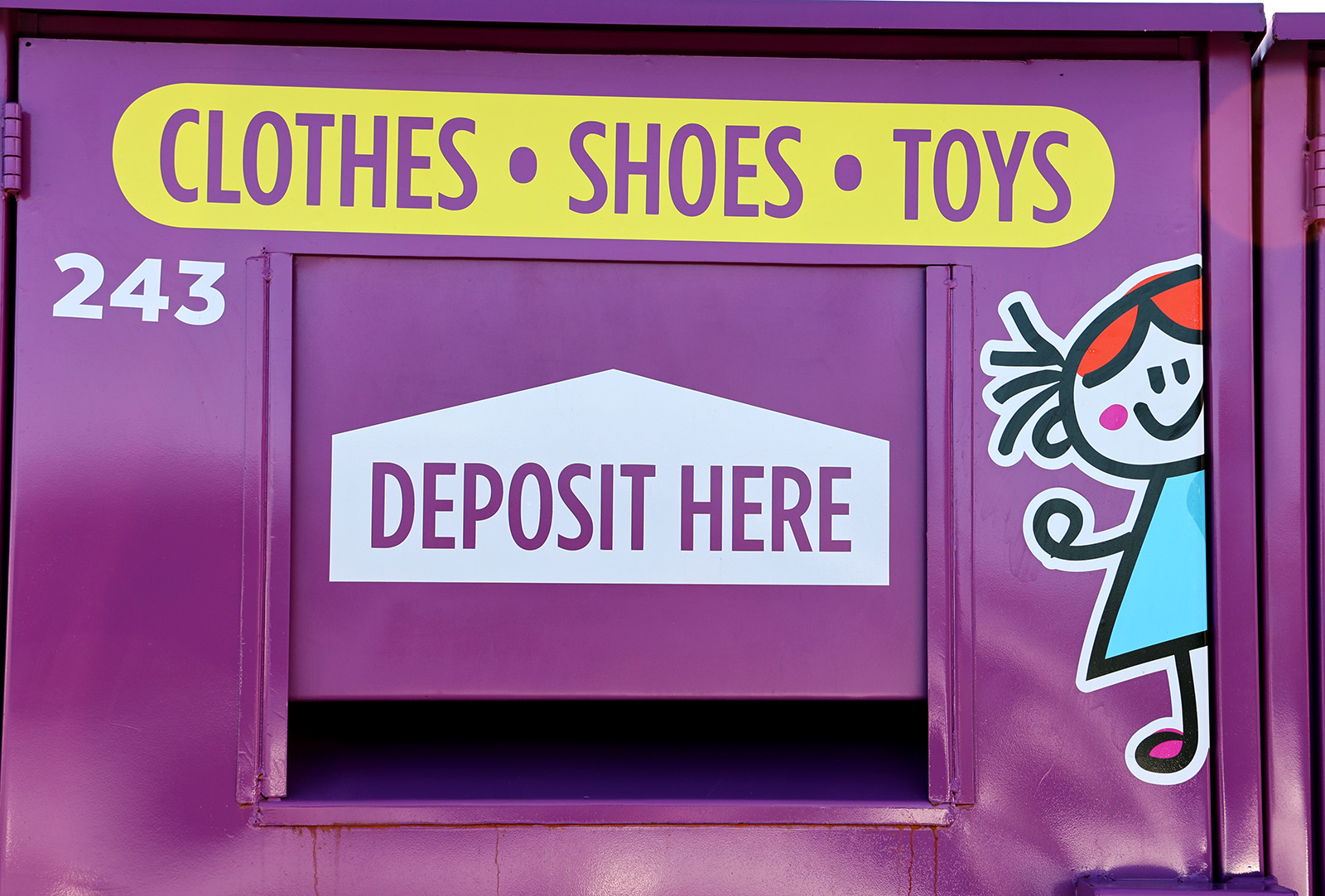
Ruble has been in the clothing salvage business for about 25 years, he said. United Global Threads has been an entity for about five years, he said. Ruble has been trying to reduce the amount of waste that ends up in landfills for all of that time. That goal is far from accomplished, he said.
“We're blessed to provide an amenity for recycling clothing and textiles in Springfield and the surrounding areas,” Ruble said. “Despite all the efforts of companies and thrift stores, there's still millions of pounds of textiles being thrown away on a yearly basis.”
“So, we feel it's a great opportunity to provide that amenity to reduce the landfill count and create opportunities to increase revenue for our causes.”
United Global Threads donates money to three nonprofits that are all focused on stopping human trafficking, Ruble said: St. Louis-based Gateway Alliance Against Human Trafficking and Healing Action, as well as Springfield-based Project Rescue.
“In recent years, we decided that there was a serious situation with human trafficking,” Ruble said. “So we begin to shift our focus to those types of charities.”
Goal is to give ‘thousands' to charities each year, but donations are ‘proprietary'
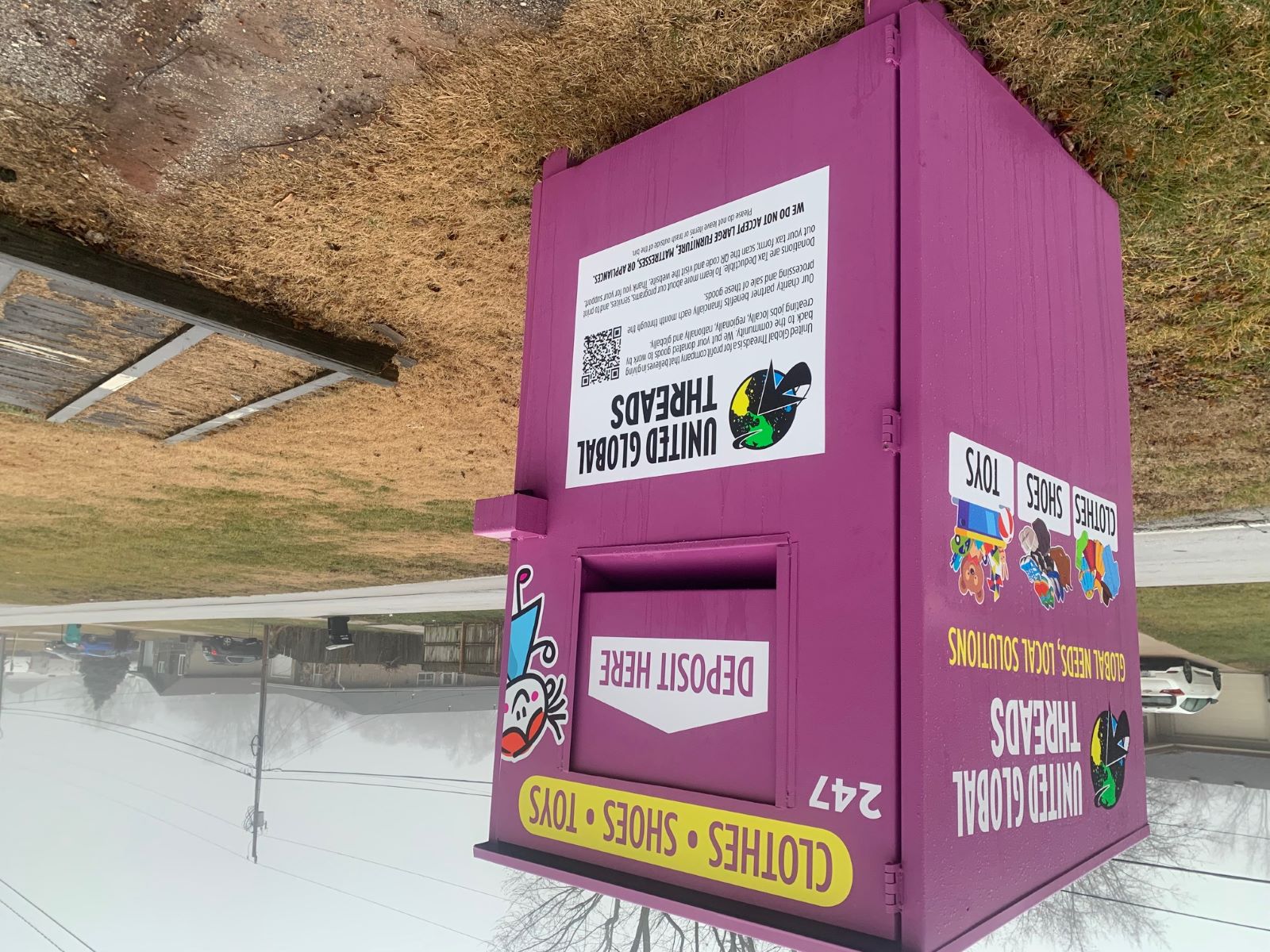
“We provide unrestricted funding,” Ruble said. “They can use that money immediately to physically rescue these people from those situations. [The nonprofits] operate solely on grants, or mostly on grants [and] those grants have a lot of red tape.”
Ruble declined to disclose the amounts of money UGT has given to each of the charities, saying the information was “proprietary.”
“It’s our business what we fund these nonprofits,” Ruble said. “I’m not really concerned about what the public knows about our funding. I know it's going to a good cause. I know it's unrestricted. I know they physically can rescue people and help people immediately.”
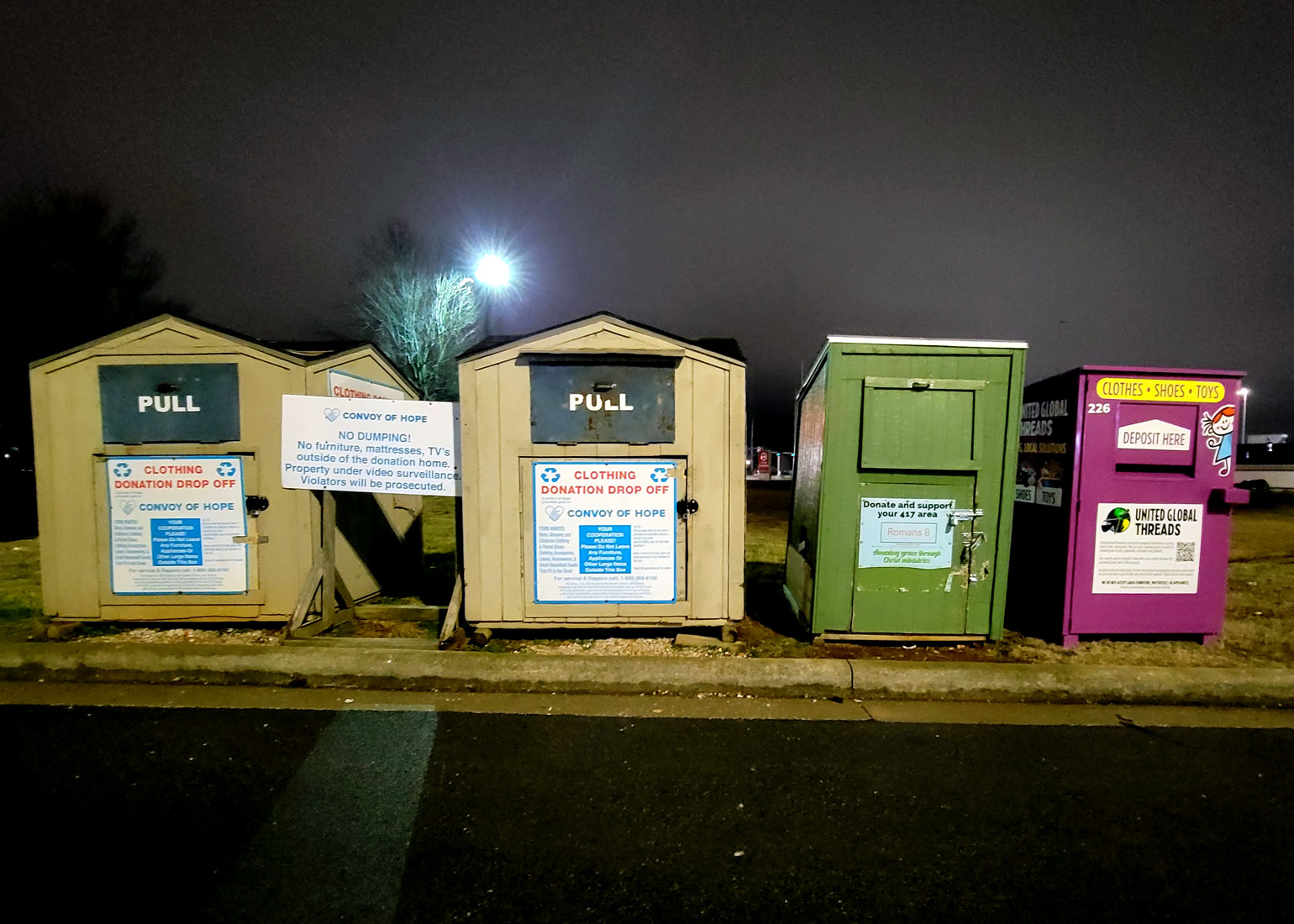
Ruble said the goal of United Global Threads is to give “thousands” of dollars each year to the human trafficking prevention nonprofits in unrestricted funding, but declined to break down that figure any more.
“We have been contributing to Human Action for years,” Ruble said. “Gateway Human Trafficking for years. Project Rescue is a new partnership. That's about all I can tell you.”
Healing Action received $6,000 from UGT in 2022 and $9,000 in 2023, said executive director Katie Rhoades. UGT has pledged about $9,000 to $10,000 in 2024, dependent on clothing bin donation amounts, Rhoades said.
Project Rescue has not received any donations over $5,000 that would have to be disclosed on the Internal Revenue Service's Form 990 from UGT, said Project Rescue chief operations officer Stephen Tipps. While its possible UGT donated through another name or donated a figure that was less than $5,000, Tipps said he had never heard of UGT or Ruble.
Despite multiple requests for comment and for UGT's donation history, Gateway Alliance Against Human Trafficking did not respond to the requests before the publication of this story.
The Think Big Foundation, on the other hand, has given $250,000 in the last three years to Big Brothers Big Sisters, mostly through its clothing donation bin campaign, Birdwell said. In the same time frame, the foundation has paid $65,000 to other nonprofits in southwest Missouri, Birdwell said. Think Big became a foundation in 2018.
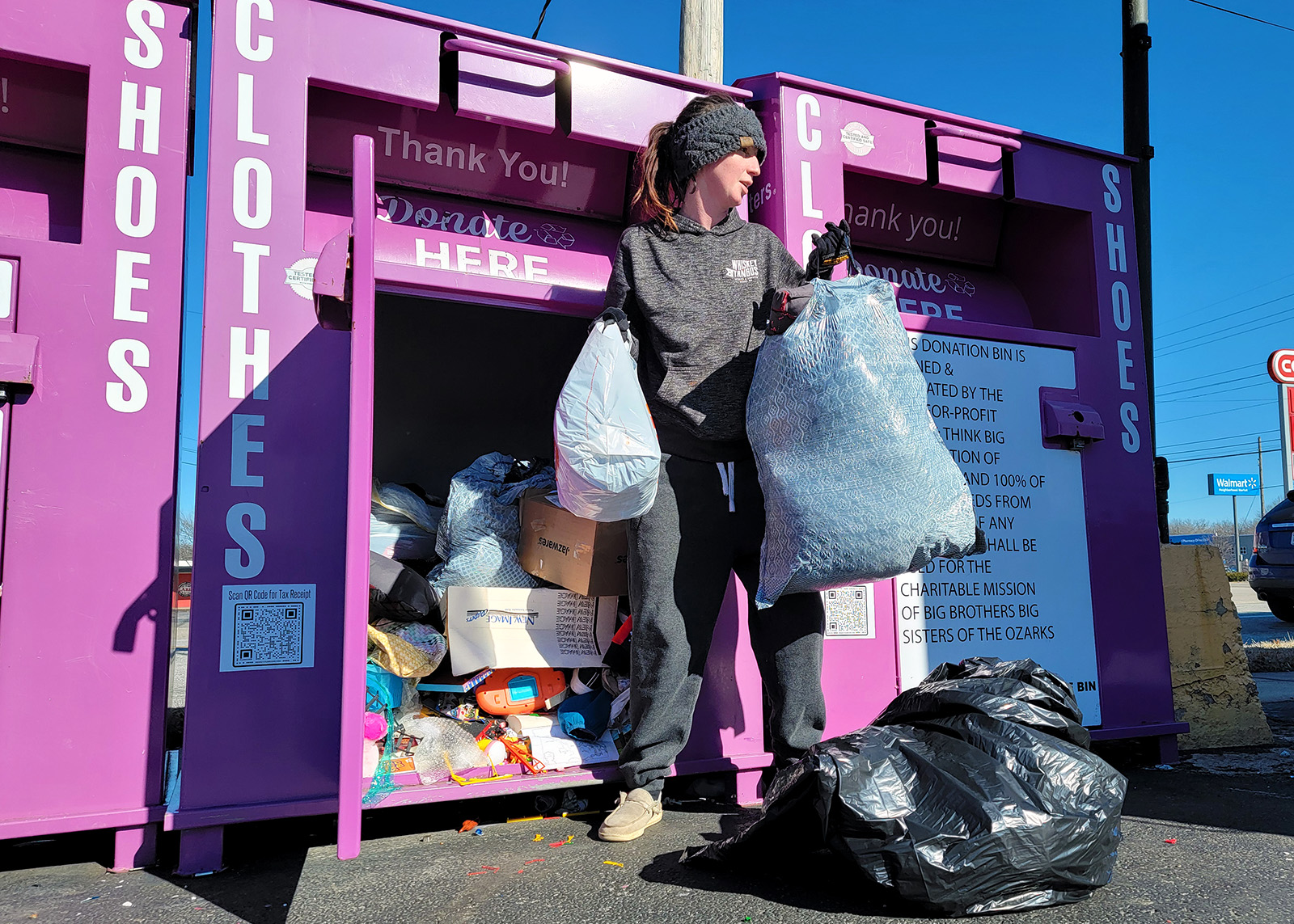
Ruble declined to disclose if the UGT has a central facility for operations in Springfield, saying that information must remain private because people (and human trafficking victims) from their charities visit their facility.
“We would never want a situation where anybody that works for the charities would have an interaction with somebody that was trying to say, find somebody, if you will, that was a victim of human trafficking,” Ruble said.
Think Big has an 8,000 square-foot warehouse it uses as a processing facility at the corner of Scenic Avenue and Battlefield Road. It is not open to the public, Birdwell said.
Resale, secondhand growth is snowballing
The resale trend has exploded in the past five years, fueled by Generation Z and millennials showing preference to purchasing refurbished wears. The U.S. secondhand market is expected to reach $70 billion by 2027, according to the 2023 Resale Report by thredUP, an online consignment and thrift store.
More than half of consumers shopped for secondhand apparel in 2022 and one-third of clothing items purchased that year were secondhand, according to the report. The growth is expected to continue as 40% of items in Gen Z's closet are secondhand. U.S. consumers purchased 1.4 billion secondhand apparel items in 2022, up 40% from the previous year.
Despite the secondhand-market growth, millions of pounds of textiles still end up in U.S. landfills. The entire country throws out more than 34 billion pounds of used textiles every year, or more than 100 pounds per person each year, according to a Boston University School of Public Health publication. More than 60% of discarded textiles end up in landfills.
UGT leases bin space — next to other bins
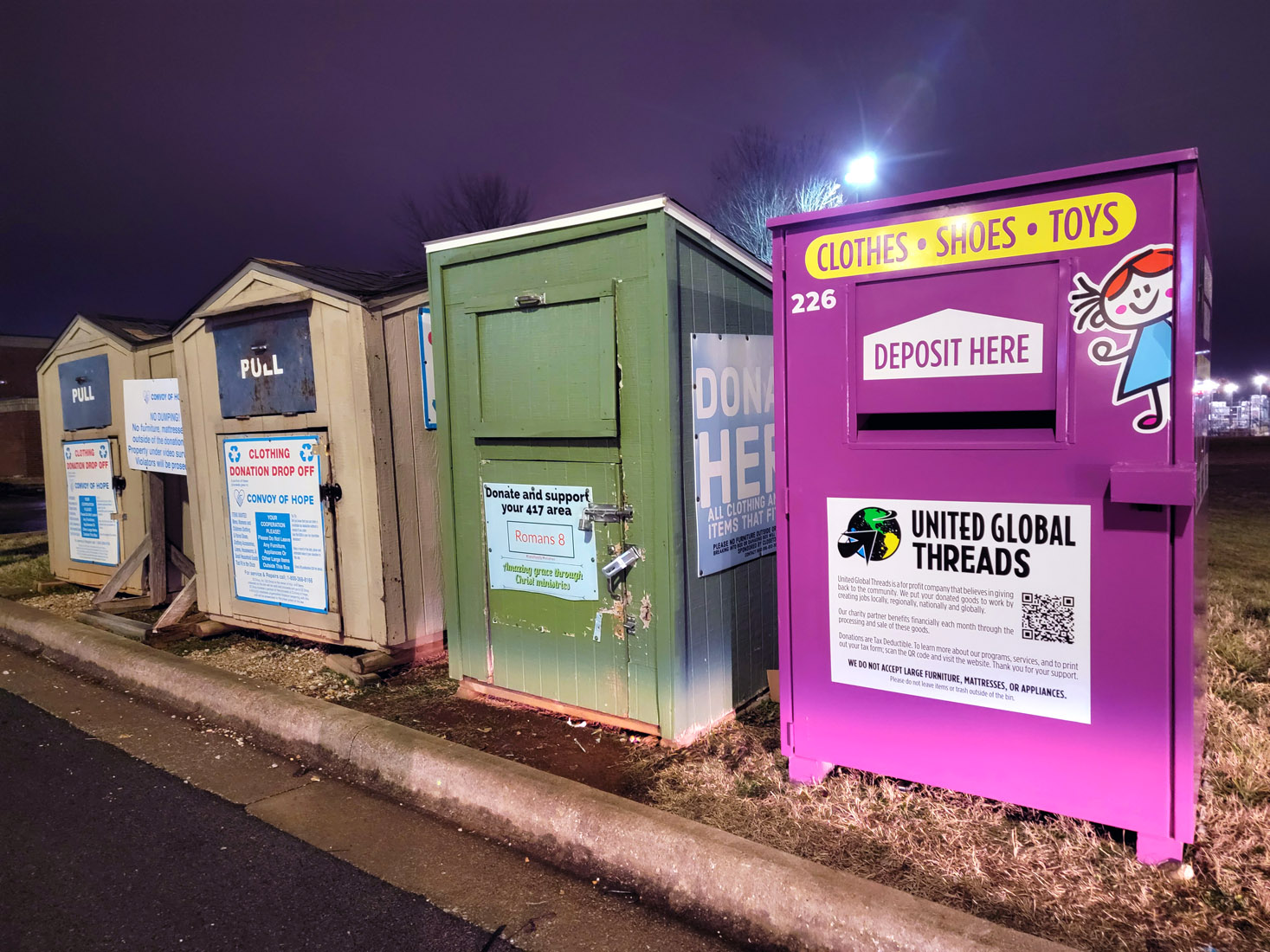
In St. Louis, UGT is involved in a lawsuit with competitor Green Zone. The for-profit clothing donation company claims that UGT has set up bins next to Green Zone's bins without paying its own lease, vandalized Green Zones' bins and claimed that UGT unfairly and repeatedly called police on Green Zone.
The suit, filed Oct. 10, by Green Zone's parent company, DTLB Holdings, LLC, claims Green Zone spent money to haul away UGT's bins that showed up without a lease of their own, but the bins reappeared.
Green Zone also accused UGT of vandalizing its bins “to persuade donors to choose its own bins instead,” the company wrote in the suit. The suit alleges Ruble lied to law enforcement agents about his company's lease agreements and filed one police report against Green Zone.
Ruble denies all the allegations.
“They have essentially done exactly what they've accused me of for the past two years to our collections,” Ruble said. “I have proof of larceny and tortious interference, and those are suable offenses.”
Online court records show there is a motion hearing scheduled in the lawsuit March 15 in a circuit court in St. Louis County.
UGT aims to have about 50 bins in the Springfield metro area, Ruble said. The company uses a proprietary algorithm to estimate how many bins it can put in a market, based on demographics, Ruble said. He declined to comment on how many bins the company currently manages in Springfield.
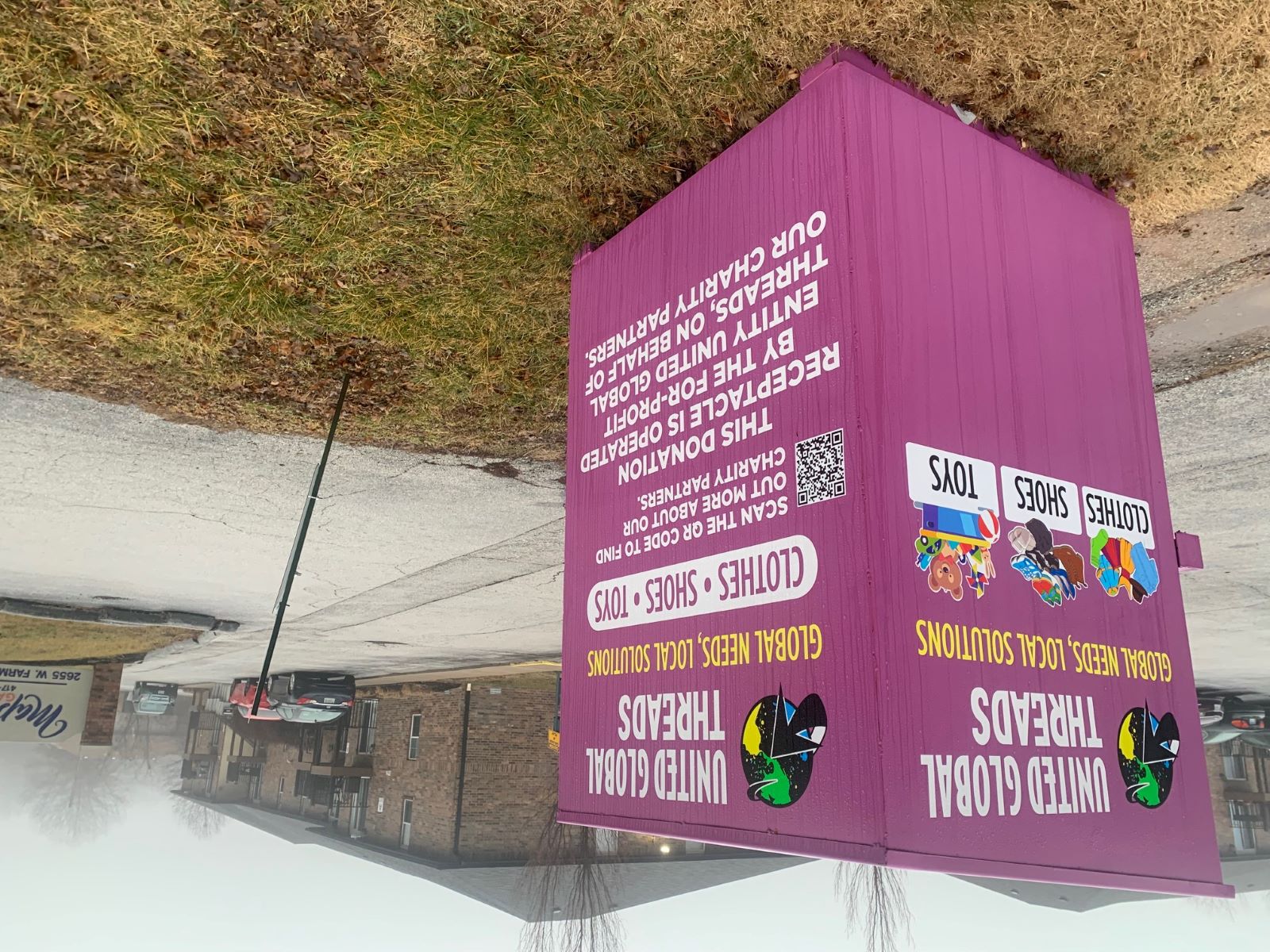
UGT has lease agreements with business or property management companies where its bins are placed in Springfield, Ruble said.
“We sign leases, we get permissions only from decisionmakers [like] property management groups,” Ruble said. “We're a company that cares about the relationships that we build with property management groups. So yes, we sign agreements of all sorts.”
The Think Big foundation has worked out agreements with property owners where its bins are placed, Birdwell said. The biggest agreement it has in the region is with Price Cutter, and you will find the majority of its purple bins at six grocery-store locations in Springfield, Birdwell said. Think Big has no bins north of Sunshine Street, but does have a few in Strafford and Rogersville, Birdwell said.
UGT's bins have appeared almost stacked on top of other donation bins in the area. Off of East Primrose, the UGT bin can be found in a cluster with Convoy of Hope's counterparts. And off of Kearney Street, UGT bins can be found in front of a Price Cutter.
Think Big looking to change bins in response
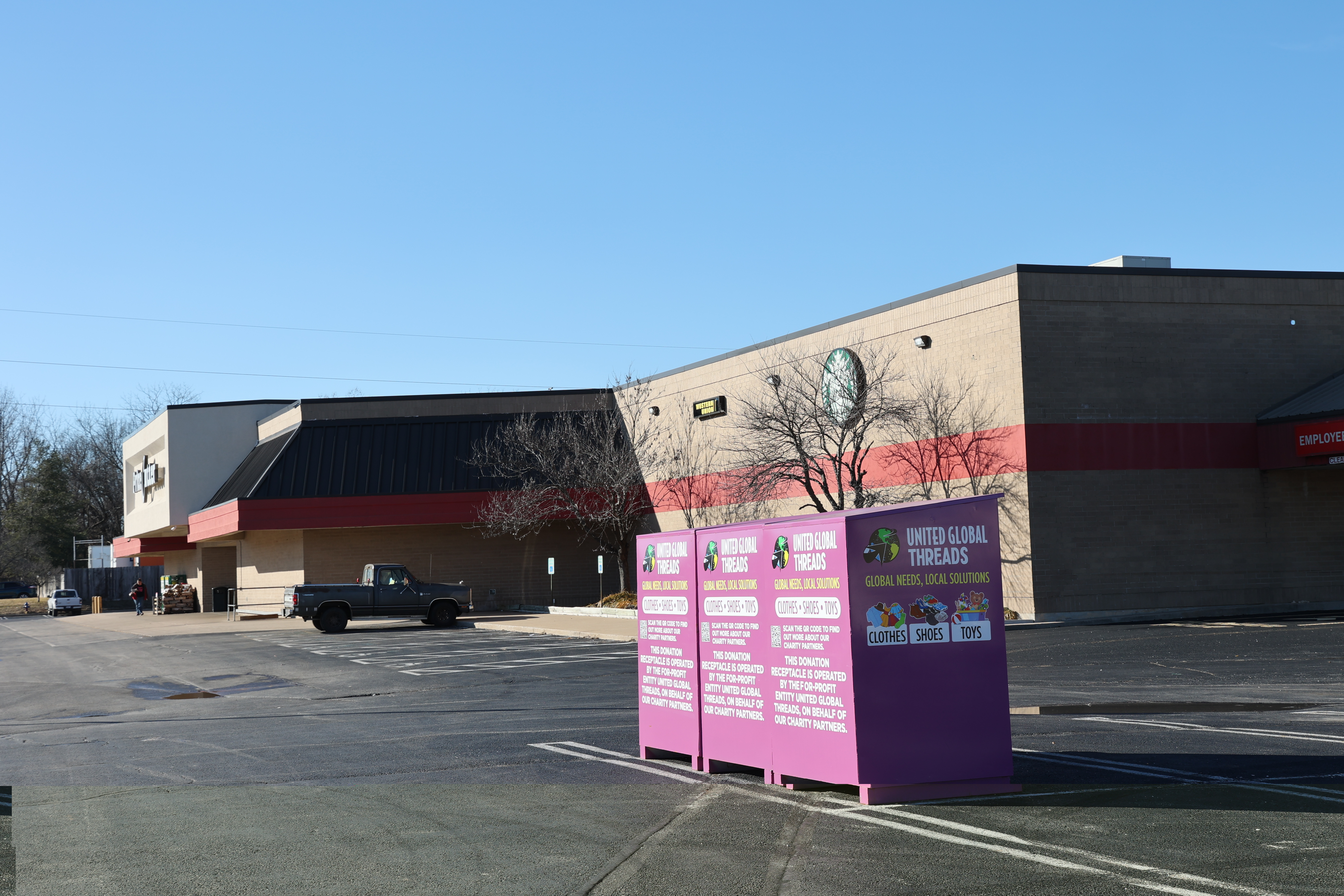
The threat to Think Big is big enough that the foundation is looking for a private donor to fund wrapping all 41 of its bins in the region so they would be different from other purple bins in the area, Birdwell said. It would be an expensive project that would have to be funded privately, she said.
“That's a capital investment we don't just have laying around,” Birdwell said. “I'm amazed at how expensive it is.”

